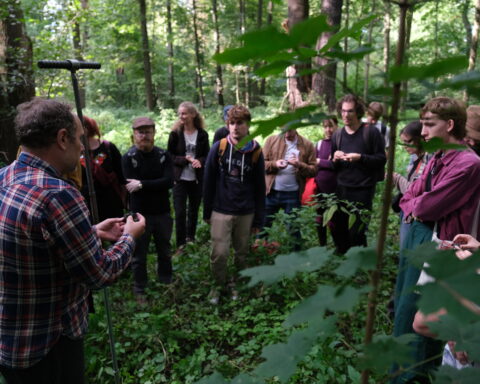05. 03. 2024 The New York Times published an explosive report that the Subcommission on Quaternary Stratigraphy (SQS), one of the bodies of the overarching International Commission on Stratigraphy, had refused to recognise the Anthropocene as a new geological epoch. The proposal prepared and promoted by the Anthropocene Working Group (AWG) identified the beginning of the Anthropocene era as the 1950s, the so-called Great Acceleration, and it also included a proposal to place the basic stratigraphic point (Global Boundary Stratotype Section and Point) in the sediments of Lake Crawford in Canada. A total of 18 members of the SQS voted, of which 12 voted against the proposal.
Geologist Philip Gibbard (University of Cambridge) tries to present the results of the vote as an end to the debate: “There are no outstanding issues to be resolved. Case closed.” So far, however, it looks more like this event has thoroughly stirred up the debate. The director of the SQS, Jan Zalasiewicz (University of Leicester), coincidentally also a member of the AWQ and one of the prominent proponents of the Anthropocene as a geological epoch, has already issued a press statement to the effect that he had submitted a request to annul the result of the vote for procedural reasons – it seems that the premature leakage of information about the result to the media was not very helpful.
The vote represents an important moment in the discussion about the so-called Long Anthropocene, which is a perspective according to which we need to take into account a much longer time scale in the discussions about the Anthropocene, as Anthropocene changes to the planet began around the time of the genesis of agriculture. This view, which is known, for example, from William Ruddiman (Early Anthropocene Hypothesis), was represented by a minority within the AWG, but is now receiving a new impulse. One of the important voices currently advocating this way of viewing the issue is the geologist Erle C. Ellis, co-author of the concept of anthroms (together with N. Ramankuttym) and director of the Anthroecology Lab (University of Maryland, Baltimore County). Ellis resigned from the AWG in 2023 after fourteen years in office, citing as one of the main reasons for his resignation an overly narrow understanding of the Anthropocene and the marginalisation of dissenting voices within this working group. Ellis is one of the main proponents of the thesis that the Anthropocene is better understood not as a geological epoch, but as a geological event. And while many members of the AWG (understandably) perceive the results of the vote as a loss and a great disappointment, Ellis, at least in his public statements, strives for a more optimistic tone:





